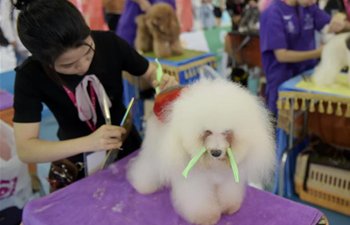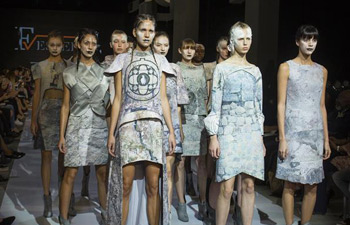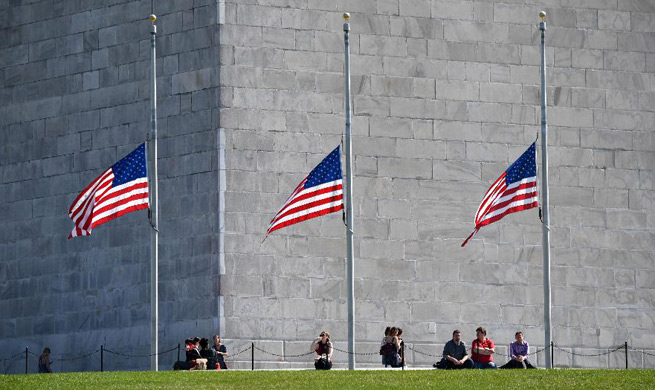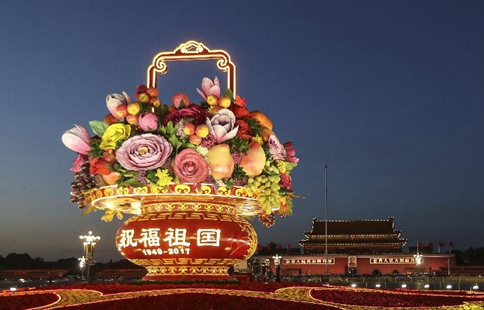ZHENGZHOU, Oct. 3 (Xinhua) -- Wearing dragon robes, Emperor Qianlong of the Qing Dynasty (1644-1911) raps and dances to promote mooncakes online.
This is part of a new marketing approach from Daoxiangcun, a traditional Chinese bakery brand, which has attracted many young customers this year with a bunch of royal red packets.
"I didn't plan to buy Daoxiangcun mooncakes this year until I saw this interesting advertisement," a buyer commented online.
Established in 1773 during Emperor Qianlong's rule, Daoxiangcun was among the first group of Chinese time-honored brands, known as laozihao, with official recognition.
Traditional Chinese brands carry excellent quality and reputation. But they face difficulties surviving due to a lack of competitiveness and their vulnerability to fierce competition from rapidly-evolving technology and business models.
Now many traditional brands are trying to take back the stage with innovative advertising campaigns for Mid-Autumn Festival, which falls on Wednesday this year.
Mid-Autumn Festival, the 15th day of the eighth month on China's lunar calendar, has been celebrated for more than 3,000 years. It is an occasion for family gatherings featuring lanterns, solving riddles and is well-known as the time to eat mooncakes.
In addition to using the emperor to advertize mooncakes to young buyers, Daoxiangcun's online business has also done well.
Last year, the sales revenue of the company's online stores on the e-commerce platforms such as Tmall and JD.com surpassed 200 million yuan (about 30 million U.S. dollars) through selling mooncakes for the festival.
Shanghai's Sunya cantonese restaurnt, which enjoys a history of more than 90 years, is collaborating with the Walt Disney Company (China) Ltd. to produce mooncakes printed with pictures of Disney cartoon characters such as Mickey Mouse and Winnie the Pooh.
In Guangzhou, the over 130-year-old Taotaoju restaurant has collaborated with Universal Pictures to promote mooncakes themed with the "Minions" cartoon characters.
"Now these centuries-old brands are becoming more market-oriented to attract young consumers," said Meng Xianming, vice president of the Henan Folklore Society in central China.

















